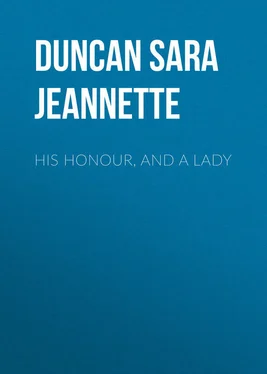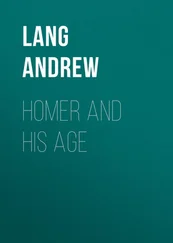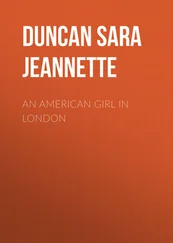Sara Duncan - His Honour, and a Lady
Здесь есть возможность читать онлайн «Sara Duncan - His Honour, and a Lady» — ознакомительный отрывок электронной книги совершенно бесплатно, а после прочтения отрывка купить полную версию. В некоторых случаях можно слушать аудио, скачать через торрент в формате fb2 и присутствует краткое содержание. Жанр: foreign_antique, foreign_prose, на английском языке. Описание произведения, (предисловие) а так же отзывы посетителей доступны на портале библиотеки ЛибКат.
- Название:His Honour, and a Lady
- Автор:
- Жанр:
- Год:неизвестен
- ISBN:нет данных
- Рейтинг книги:5 / 5. Голосов: 1
-
Избранное:Добавить в избранное
- Отзывы:
-
Ваша оценка:
- 100
- 1
- 2
- 3
- 4
- 5
His Honour, and a Lady: краткое содержание, описание и аннотация
Предлагаем к чтению аннотацию, описание, краткое содержание или предисловие (зависит от того, что написал сам автор книги «His Honour, and a Lady»). Если вы не нашли необходимую информацию о книге — напишите в комментариях, мы постараемся отыскать её.
His Honour, and a Lady — читать онлайн ознакомительный отрывок
Ниже представлен текст книги, разбитый по страницам. Система сохранения места последней прочитанной страницы, позволяет с удобством читать онлайн бесплатно книгу «His Honour, and a Lady», без необходимости каждый раз заново искать на чём Вы остановились. Поставьте закладку, и сможете в любой момент перейти на страницу, на которой закончили чтение.
Интервал:
Закладка:
They were to be married in March, when Ancram would take a year’s furlough, and she would help him to lave his stiffened powers of artistic enjoyment in the beauties of the Parthenon and the inspirations of the Viennese galleries and the charms of Como and Maggiore. They talked a great deal of the satisfaction they expected to realise in this way. They went over it in detail, realising again and again that it must represent to him compensation for years of aridity and to her a store against the future likely to be drawn upon largely. Besides, it was a topic upon which they were quite sure of finding mutual understanding, even mutual congratulation – an excellent topic.
Meanwhile Ancram lived with Philip Doyle in Hungerford Street under the ordinary circumstances which govern Calcutta bachelors. Doyle was a barrister. He stood, in Calcutta, upon his ability and his individuality, and as these had been observed to place him in familiar relations with Heads of Departments, it may be gathered that they gave him a sufficient elevation. People called him a “strong” man because he refused their invitations to dinner, but the statement might have had a more intelligent basis and been equally true. It would have surprised him immensely if he could have weighed the value of his own opinions, or observed the trouble which men who appropriated them took to give them a tinge of originality. He was a survival of an older school, certainly – people were right in saying that. He had preserved a courtliness of manner and a sincerity of behaviour which suggested an Anglo-India that is mostly lying under pillars and pyramids in rank Calcutta cemeteries now. He was hospitable and select – so much of both that he often experienced ridiculous annoyance at having asked men to dinner who were essentially unpalatable to him. His sensitiveness to qualities in personal contact was so great as to be a conspicuous indication, to the discerning eye, of Lewis Ancram’s unbounded tact.
Circumstances had thrown the men under one roof, and even if the younger of them had not made himself so thoroughly agreeable, it would have been difficult to alter the arrangement.
It could never be said of Lewis Ancram that he did not choose his friends with taste, and in this case his discrimination had a foundation of respect which he was in the habit of freely mentioning. His admiration of Doyle was generous and frank, so generous and frank that one might have suspected a virtue in the expression of it. Notwithstanding this implication, it was entirely sincere, though he would occasionally qualify it.
“I often tell Doyle,” he said once to Rhoda, “that his independence is purely a matter of circumstance. If he had the official yoke upon his neck he would kow-tow like the rest of us.”
“I don’t believe that,” she answered quickly.
“Ah well, now that I think of it I don’t particularly believe it myself. Doyle’s the salt of the earth anyhow. He makes it just possible for officials like myself to swallow officialdom.”
“Did it ever occur to you,” she asked slowly, “to wonder what he thinks of you?”
“Oh, I daresay he likes me well enough. Irishmen never go in for analysing their friends. At all events we live together, and there are no rows.”
They were driving, and the dogcart flew past the ships along the Strand – Ancram liked a fast horse – for a few minutes in silence. Then she had another question.
“Have you succeeded in persuading Mr. Doyle to – what do the newspapers say? – support you at the altar, yet?”
“No, confound him. He says it would be preposterous at his age – he’s not a year older than I am! I wonder if he expects me to ask Baby Bramble, or one of those little boys in the Buffs! Anyway it won’t be Doyle, for he goes to England, end of February – to get out of it, I believe.”
“I’m not sorry,” Rhoda answered; but it would have been difficult for her to explain, at the moment, why she was not sorry.
CHAPTER IV
“I don’t mind telling you,” said Philip Doyle, knocking the ashes out of his pipe, “that, personally, His Acting Honour represents to me a number of objectionable things. He is a Radical, and a Low Churchman, and a Particularist. He’s that objectionable ethical mixture, a compound of petty virtues. He believes this earth was created to give him an atmosphere to do his duty in; and he does it with the invincible courage of short-sightedness combined with the notion that the ultimate court of appeal for eighty million Bengalis should be his precious Methodist conscience. But the brute’s honest, and if he insists on putting this University foolishness of his through, I’m sorry for him. He’s a dead man, politically, the day it is announced.”
“He is,” replied Ancram, concentrating his attention on a match and the end of his cigar. “There’s – no doubt – about that.”
The two men were smoking after dinner, with the table and a couple of decanters between them. Roses drooped over the bowl of Cutch silver that gleamed in the middle of the empty cloth, and a lemon leaf or two floated in the finger-glass at Ancram’s elbow. He threw the match into it, and looked across at Doyle with his cigar between his teeth in the manner which invites further discussion.
“In point of political morality I suppose he’s right enough – ”
“He generally is,” Ancram interrupted. “He’s got a scent for political morality keen enough to upset every form of Government known to the nineteenth century.”
“But they see political morality through another pair of spectacles in England. To withdraw State aid from education anywhere at this end of the century is as impracticable as it would be to deprive the British workman of his vote. It’s retrogressive, and this is an age which will admit anything except a mistake of its own.”
“He doesn’t intend to withdraw State aid from education. He means to spend the money on technical schools.”
“A benevolent intention. But it won’t make the case any better with the Secretary of State. He will say that it ought to be done without damaging the sacred cause of higher culture.”
“Damn the sacred cause of higher culture!” replied Ancram, with an unruffled countenance. “What has it done out here? Filled every sweeper’s son of them with an ambition to sit on an office stool and be a gentleman! – created by thousands a starveling class that find nothing to do but swell mass-meetings on the Maidan and talk sedition that gets telegraphed from Peshawur to Cape Comorin. I advertised for a baboo the other day, and had four hundred applications – fifteen rupees a month, poor devils! But the Dayes were a fortnight in getting a decent cook on twenty.”
“Bentinck should have thought of that; it’s too late now. You can’t bestow a boon on the masses in a spirit of progressiveness and take it away sixty years later in a spirit of prudence. It’s decent enough of Church to be willing to bear the consequences of somebody else’s blunder; but blunders of that kind have got to take their place in the world’s formation and let the ages retrieve them. It’s the only way.”
“Oh, I agree with you. Church is an ass: he ought not to attempt it.”
“Why do you fellows let him?”
Ancram looked in Doyle’s direction as he answered – looked near him, fixed his eyes, with an effect of taking a view at the subject round a corner, upon the other man’s tobacco-jar. The trick annoyed Doyle; he often wished it were the sort of thing one could speak about.
“Nobody is less amenable to reason,” he said, “than the man who wants to hit his head against a stone wall, especially if he thinks the world will benefit by his inconvenience. And, to make matters worse, Church has complicated the thing with an idea of his duty toward the people at home who send out the missionaries. He doesn’t think it exactly according to modern ethics that they should take up collections in village churches to provide the salvation of the higher mathematics for the sons of fat bunnias in the bazar – who could very well afford to pay for it themselves.”
Читать дальшеИнтервал:
Закладка:
Похожие книги на «His Honour, and a Lady»
Представляем Вашему вниманию похожие книги на «His Honour, and a Lady» списком для выбора. Мы отобрали схожую по названию и смыслу литературу в надежде предоставить читателям больше вариантов отыскать новые, интересные, ещё непрочитанные произведения.
Обсуждение, отзывы о книге «His Honour, and a Lady» и просто собственные мнения читателей. Оставьте ваши комментарии, напишите, что Вы думаете о произведении, его смысле или главных героях. Укажите что конкретно понравилось, а что нет, и почему Вы так считаете.












